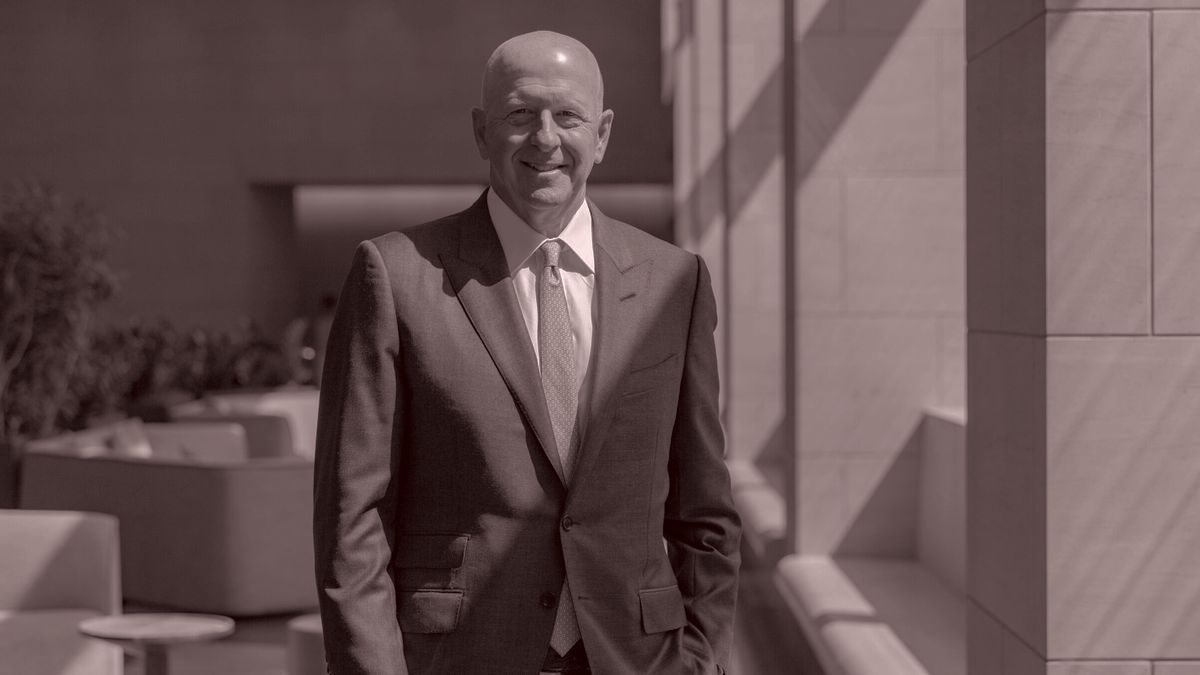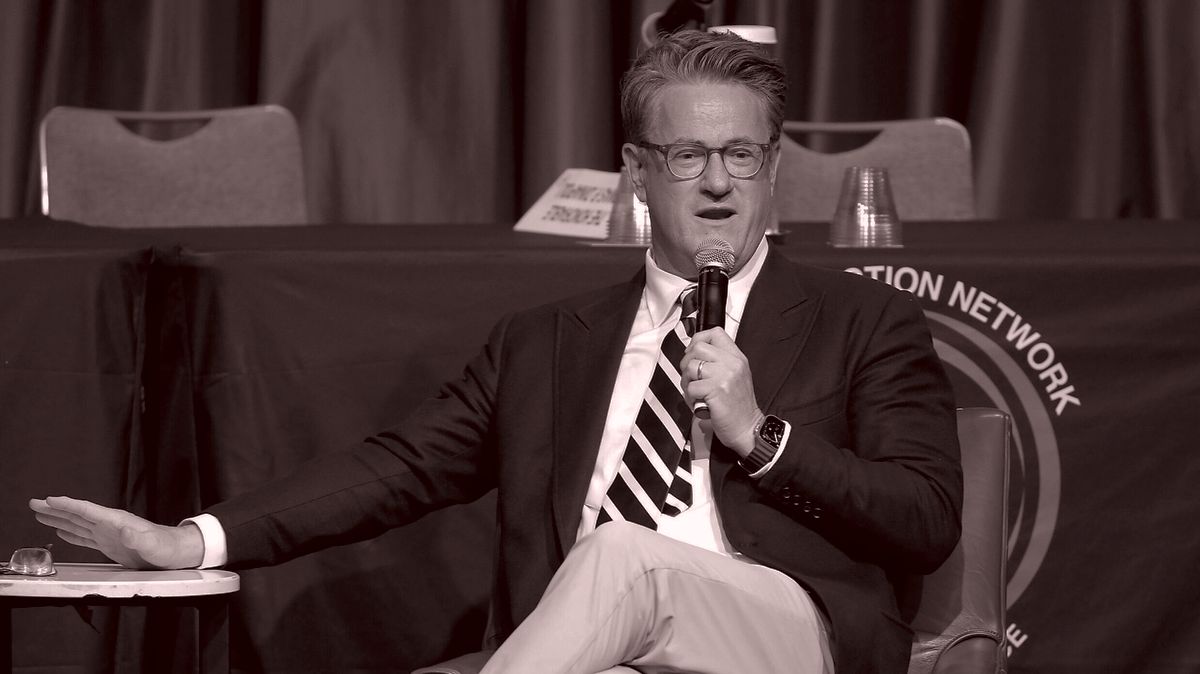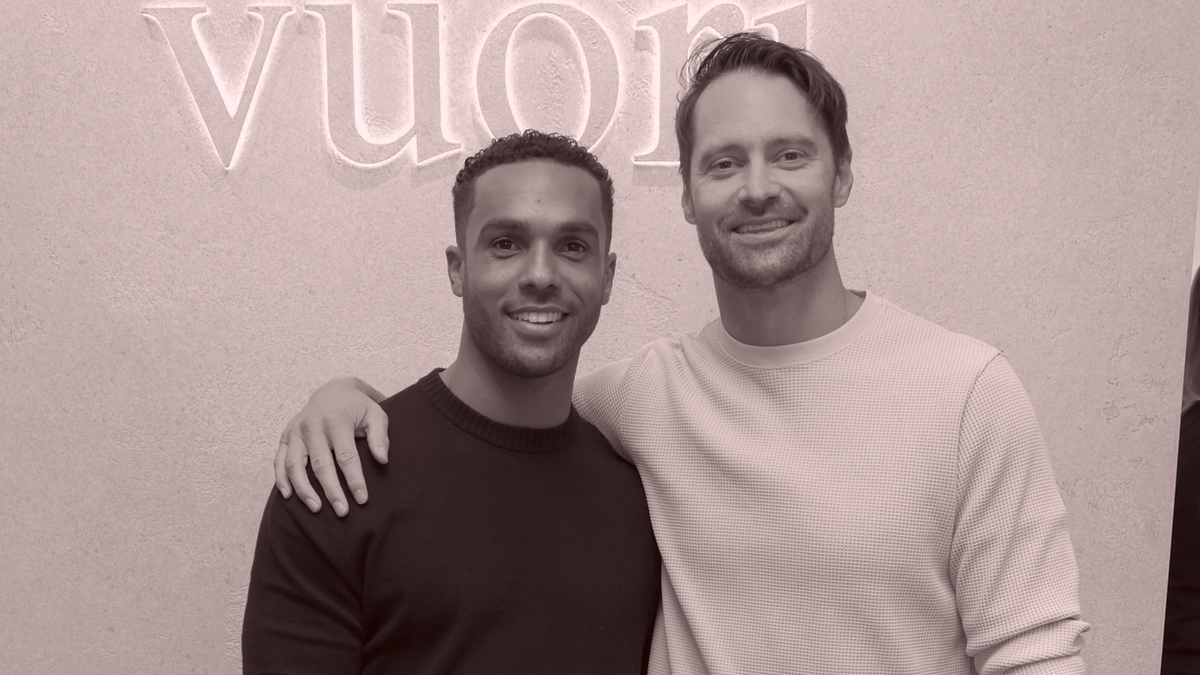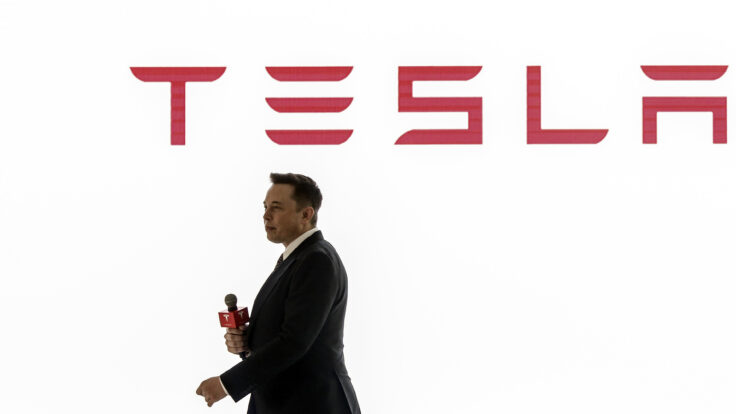Welcome back to Dry Powder. I’m Bill Cohan.
There are a handful of Wall Street C-suite succession stories already underway this year, proving that, unlike Hollywood—I’m looking at you, Bob Iger—Wall Street can get succession right, at least when it puts its mind to it. At least six of Wall Street’s top firms have reasonable succession plans in place, barring the almost-inevitable surprises. Other firms, however, still have significant
work to do, and seem to be avoiding the succession question like the plague. More on all that, below the fold.
But first…
|
- The $TRUMP bump: Like many on Wall Street, I’m still trying to make sense of Donald and Melania Trump’s dueling memecoins, which were issued on the eve of the inauguration and instantly generated billions of dollars in unregulated, largely untraceable paper wealth for the president and first lady. $TRUMP, the first of the two digital currencies, exploded in value early Sunday to some $75 per coin. Since then, it’s plummeted
to around $40 a unit, according to CoinMarketCap.com. It still has a total market value of $7.7 billion, and the fully diluted value of the coin—that is, coins held by Trump and everyone else—was nearly $39 billion.
This is all beyond ridiculous, of course. Notably, the crypto community, already a bit miffed that their would-be champion conspicuously left crypto off his inaugural address to-do list, sees nothing but trouble (although it did get a sop from Trump today in the form
of Silk Road founder Ross Ulbricht’s full pardon.) The $TRUMP coin, many worry, will imperil Bitcoin—regulated as a commodity by the C.F.T.C.—and discredit the entire crypto project. Paul Atkins, Trump’s nominee for S.E.C. chair, and crypto czar David Sacks are less likely to crack down on what remains a legal gray area in the market if their boss is one of its biggest beneficiaries. That may be good news for Trump, but it’s
probably a negative signal for real crypto businesses and institutional investors seeking the security and respectability of a stable regulatory regime.
On Sunday, for what it’s worth, $MELANIA also soared to a market value of some $2.2 billion—taking some of the air out of her devoted husband’s memecoin, for reasons that I couldn’t even attempt to explain. $MELANIA has since shed more than half of its ridiculous valuation. Can someone please explain to me why people buy this crap,
knowing they stand to lose real money when the first family and its cronies inevitably cash out?
|
|
|
And now, some news and notes on succession season, or lack thereof…
|
|
|
Goldman Sachs just gave C.E.O. David Solomon 80 million reasons to
stick around for another five years. It also provided a plan for succession—the sort of road map that is still egregiously absent among some of Goldman’s largest peers.
|
|
|
Earlier this week, in a filing with the S.E.C., Goldman Sachs
announced that C.E.O. David Solomon would be sticking around for at least another five years—when he’ll be 68, the same age that the unmovable Jamie Dimon is now. To entice Solomon to stay put, the Goldman board of directors awarded him a restricted stock package worth $80 million, but only if he remains the Goldman C.E.O. until 2030, and doesn’t do anything that would get him fired for cause.
That $80 million stock award, which
cliff vests after five years, is on top of Solomon’s current $39 million compensation package, which comprises a $2 million salary; a cash bonus of $8.33 million; nearly $3 million of what Goldman is calling its new carried interest program—rewarding top Goldman executives for growing the firm’s alternative assets business; and $26 million of performance stock units. (Solomon’s 2024 compensation package was 26 percent higher than the $31 million he got paid in 2023.) He also owns
141,752 Goldman shares, according to the latest proxy filing, worth nearly $89 million these days. He’s no Jamie, whose shares in JPMorgan Chase are worth something like $2.7 billion, but as far as I can tell, he’s not suffering.
|
|
|
A MESSAGE FROM OUR SPONSOR
|
PERFORMANCE UNLEASHED
With a distinct sporting personality, the Range Rover Sport is a
peerless performer.
EXPLORE
|
|
|
In any case, Solomon should be well compensated for the
year Goldman just turned in. In 2024, Goldman generated net revenues of $53.51 billion, net earnings of $14.28 billion, diluted earnings per common share of $40.54, and a return-on-equity of 12.7 percent—one of the firm’s best years ever. (I should know, of course, since I wrote the definitive biography of the bank.) Goldman now has a market value of nearly
$200 billion, and its stock is up 64.4 percent in the past year, after the firm jettisoned its pretty much failed effort to get into consumer banking and rededicated itself to what it does best: investment banking, trading, private investing, and asset and wealth management.
But if Solomon will be hanging around 200 West Street for the intermediate term, what does that mean for John
Waldron, Solomon’s loyal number two? It turns out the Goldman board also wants the 55-year-old Waldron to stick around. It gave him the same $80 million stock retention bonus, which he gets if he remains at the firm for five years. If that doesn’t signal intentionality about succession, I don’t know what does. Sure, anything can still happen. Once upon a time, John Thain and John Thornton were slated to succeed Hank Paulson as
Goldman’s leaders, but neither man made it over the finish line. Instead, Lloyd Blankfein got the nod after Hank became George W. Bush‘s treasury secretary. Anyway, it sure seems like Waldron’s only threat is Solomon not giving up the throne.
Waldron’s 2024 comp was not disclosed in the public filing, but his 2023 package was $30 million,
$1 million less than his boss. I suspect he’ll be paid around $38 million for 2024, keeping him just below Solomon. Waldron will also be participating in Goldman’s new carried interest program, as will Denis Coleman, the bank’s chief financial officer, and Kathryn Ruemmler, its general counsel. I think it’s safe to say, barring unforeseen circumstances, that Goldman has set its leadership up for the next decade and beyond.
Could something happen to upset that apple cart? Of course. This is Wall Street, after all. But Waldron is a cool—and patient—customer. Apparently, he had been thinking of leaving Goldman, for Apollo of all places, but those talks “fizzled out,” according to The Wall Street Journal. That was probably for the best, John. You may not remember, but one of your former Goldman colleagues, Marc
Spilker, retired from the firm after two decades in May 2010 to become president of Apollo. The idea was for Spilker to manage the firm day to day underneath the three Apollo co-founders: Leon Black, Marc Rowan, and Josh Harris. Less than four years later, in March 2014, Apollo pulled the plug on the Spilker experiment. I don’t know why any of them thought the arrangement would work: Apollo is even more sui generis than
Goldman.
As the Waldron package attests, there are a handful of Wall Street C-suite succession stories already underway this year, all of them playing out slightly differently. Some feature the finesse and predictability of the Goldman situation. Others, not so much…
|
Apollo, for its part, also recently solidified its leadership team
for the long haul, which was especially relevant in the wake of Marc Rowan’s short-lived and fantastical dalliance as a candidate to be Trump’s new treasury secretary. Indeed, Marc’s not going anywhere. Apollo has agreed to extend his contract as C.E.O. for another five years, when he will be around 67 years old and Trump will be out of the White House. That doesn’t necessarily mean Marc is out of the
running for the Treasury post if, say, Scott Bessent, who got the job, wants out for some reason or is cut down by Trump. Rowan has been the C.E.O. of Apollo since March 2021, when founder Leon Black took his leave in the wake of back-to-back
revelations about his involvement with Jeffrey Epstein and Guzel Ganieva,
a Russian woman with whom he’d had a consensual affair.
Since Marc took charge of the firm, the stock is up 253 percent, and Apollo’s market value is now $100 billion. Marc is kind of a cheap date for Apollo: He only takes a salary of $100,000 to run the firm, plus expenses related to his job, including getting reimbursed for the use of his own private jet when he’s traveling on business. He
also gets carried interest in the firm’s various funds and, of course, his 58 million Apollo shares are currently worth nearly $10 billion. (At press time, I was still waiting to hear back whether this remains his deal with the new contract, but let’s assume so until I hear differently.)
Like Goldman, Apollo seems to have locked in its leader for the intermediate term. If Rowan gives up the post when his
five-year contract runs out, his successor will be 62-year-old Jim Zelter, who’s just been promoted to president of the firm, overseeing Apollo’s roughly $750 billion of assets, including private equity, private credit, and its annuity insurance business, Athene. Zelter, who roomed with NBA commissioner Adam Silver at Duke, has been at Apollo since 2006, and was previously co-president of Apollo’s asset management business. Other candidates to succeed Rowan
include Scott Kleinman, 52, and John Zito, 43, who together will now run Apollo’s asset management business.
Obviously, if Rowan were to take a job in Washington, Zelter would be Apollo’s next C.E.O. But if Rowan sticks around, the Apollo board, which is looking for a new chairman, given the impending departure of Jay Clayton to become the U.S. Attorney for the
Southern District of New York, might choose one of the two younger men to be Apollo’s C.E.O. In any event, like Goldman, Apollo seems to have answered the question of near-term succession.
|
|
|
A MESSAGE FROM OUR SPONSOR
|
PERFORMANCE UNLEASHED
With a distinct sporting personality, the Range Rover Sport is a
peerless performer.
EXPLORE
|
|
|
So where on Wall Street does succession remain an open question? Not at Morgan
Stanley, where James Gorman—now leading the charge at Disney to find Bob Iger’s successor—ran an elegant process and chose Ted Pick to follow him. A wise choice, it seems, as Morgan Stanley’s stock is up 61 percent in the year since Pick succeeded Gorman. Likewise, succession questions at the Carlyle Group seem to have settled down after they lured Harvey Schwartz—lost out to Solomon for the top job at Goldman—with the promise
of something like $187 million in compensation. This hire, too, seems to be paying off: Carlyle’s stock is up 50 percent since Schwartz took over in February 2023, although it still lags its rivals in market value and influence.
|
Not surprisingly, succession looms as a larger problem for the
three firms where the issue has gone unresolved for years: JPMorgan Chase, led by Dimon for some 20 years; Bank of America, led by Brian Moynihan, who’s been the bank’s C.E.O. for a little more than 15 years; and BlackRock, where 72-year-old Larry Fink can’t seem to keep a successor. Last week, Mark Wiedman, the third potential successor to Fink, left the firm unexpectedly, following the departures of Salim
Ramji, now C.E.O. of Vanguard, and Mark Wiseman, now chairman of Lazard’s business in Canada.
The trouble is also particularly acute at BofA and JPM, where neither Moynihan nor Dimon seem keen on giving up their roles. Moynihan, for one, has made clear he’s not going anywhere. At 64, he’s said he’ll stay at the bank until at least the end of the decade. I couldn’t begin to
tell you who’s in line to succeed him, and neither can anyone else, I’d wager. There’s an array of possible internal candidates, none of whom are obvious or well-known. Nonetheless, Moynihan avers that he has a plan for succession, should one be needed before the end of the decade, or whenever he chooses to hang up his cleats.
Dimon, too, seems determined not to abdicate for the foreseeable
future, or until the end of time, whichever comes first. JPMorgan Chase, which has a market value of $740 billion thanks in large part to Dimon’s 20 years at the helm, recently announced a series of management changes that did absolutely nothing to clarify who would succeed King Jamie. Daniel Pinto, who stepped in for Dimon during his health scare and is the firm’s president and chief operating officer, will leave the bank at the end of 2026. This June 30, he’ll relinquish his
titles and become a vice chairman and senior banker advising clients.
Jamie’s reluctance to retire seems to have unsettled other succession contingencies, too. Jennifer Piepszak, who had been co-leader of the bank’s corporate and investment bank, was named chief operating officer, effective immediately, under Pinto’s guidance until he leaves the role in June. You’d think the promotion
positions the well-liked Piepszak to succeed Dimon, but you’d be wrong. At the time of her promotion, a bank spokesman announced that Piepszak took herself out of the running to succeed Dimon. “Piepszak has made clear her preference for a senior operating role, working closely with Jamie and in support of the top leadership and she doesn’t want to be considered for the C.E.O. position at this time,” the spokesman said.
All of which makes murkier the question of who in the world can succeed Jamie. There’s a roster of internal candidates—Marianne Lake, Mary Erdoes, Doug Petno, and Troy Rohrbaugh—all of whom report directly to Jamie, but none of whom, in my humble opinion, have the gravitas to fill the shoes of one of America’s greatest bankers ever. I suspect JPMorgan Chase might end up doing what it
did when they hired Jamie: find someone to run the place who’s never worked there.
You’ll recall that Jamie was C.E.O. of Bank One when JPMorgan Chase acquired it for $58 billion in 2004. The Federal Reserve hasn’t allowed bank mergers of that size since the 2008 financial crisis, and especially not by our SIFIs—“systemically important financial institutions.” That might change during Trump II, if
Jay Powell’s term as Fed chief ends next year. Trump might be willing—eager, in fact—to appoint a Fed chairman who’d unleash the big U.S. banks to do material M&A deals once again, which could in turn position Jamie to pull a Bill Harrison and acquihire his successor.
If that doesn’t work, or isn’t permitted, there are plenty of bankers out there with the stature to follow Jamie as
C.E.O. of our largest and most profitable bank—2024 net income, $52 billion. The bigger question is when Jamie will admit it’s time.
|
|
|
An insider-friendly tip sheet from Matthew Belloni, who spent 14 years in the trenches at The Hollywood Reporter
and five before that as an entertainment lawyer. Subscribers also receive What I’m Hearing+, a companion email focused on entertainment law, the streaming industry, and more.
|
|
|
Puck senior political correspondent Tara Palmeri is here to help you get through what may be the most chaotic and
consequential presidential election cycle of our lifetime. With 15 years covering politics, Tara speaks with the smartest political brains to discuss what is happening behind the scenes in Washington D.C., and on the campaign trail.
|
|
|
Need help? Review our FAQ page or contact us for assistance. For brand partnerships, email ads@puck.news.
You received this email because you signed up to receive emails from Puck, or as part of your Puck account associated with . To stop receiving this newsletter and/or manage all your email preferences, click
here.
|
Puck is published by Heat Media LLC. 107 Greenwich St, New York, NY 10006
|
|
|
|























